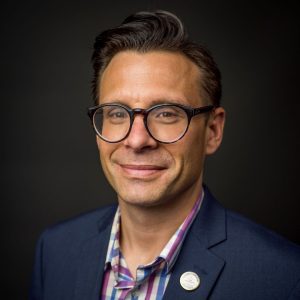Rejoice always, pray without ceasing, give thinks in all circumstances; for this is the will of God in Christ Jesus for you. 1 Thes. 5:16-18 ESV
Some passages of scripture make more sense if you read the phrases from ending to beginning. The phrase “rejoice always,” can seem like Pollyanna advice until you read the last phrase, “for this is the will of God in Christ Jesus for you.”
The will of God is the starting place for our response to all of life’s events—the bright ones and the dark ones—but it is especially important during these dark days. What is God’s will for you during the COVID-19 pandemic?
Most believers want to know the know the will of God, but fewer want to follow the will of God. Discovering the will of God is a waste of time unless it is accompanied by a commitment to follow it regardless of whether it aligns with known self-interests.
We can rejoice always—even now, because we know it is God’s will for us. We rejoice that God is in control. We rejoice that this pandemic, like all other pandemics, will have an ending. We rejoice that if even the worst that can happen, does happen that there is hope beyond the grave.
We can pray without ceasing when we know it is God’s will. Instead of just watching the news we can pray the news. When our President or another political leader is featured in a story, we pray for our governing authorities to have wisdom. When we are viewing refrigerated trailers being filled with pandemic victims, we pray for their families.
When we wash our hands for 20 seconds, we don’t just sing happy birthday; instead, we pray for health care workers who are on the front lines. When we hear an ambulance go by, we pause and pray for our first responders. Twice a day, at 7:14 in the morning and evening we pray that God will hear our prayers and heal our land (2 Chron. 7:14). At 3:16 in the afternoon we remember that God loves the world, and we pray for those who have yet to respond to the gospel.
When you get on one another’s nerves in your home, you pause and thank God for your family and for extra grace. When you are tempted to worry, you pray.
We can give thanks in everything when we know it is God’s will. Please don’t misread the previous sentence. I’m not saying that the present suffering is God’s will. I’m saying a thankful heart is. Even when we cannot give thanks for everything, we can give thanks in everything.
I was asked to write an article on managing conflict during the safer-at-home mandate, which is what I’ve attempted to do. Following God’s will and being a rejoicing, praying, thankful person will inform how you respond to conflict caused by others, and will keep you from spreading it around.
Please, be safer while you are at home. Love and care for one another. Rejoice. Pray. Be thankful.
Read More

Hope in Suffering
Gateway student Matt Bodden is an evangelist who is ready to answer the question of suffering with the gospel.

The Gateway Journal of Theology Inaugural Issue
Read all new articles in the inaugural issue of The Gateway Journal of Theology.
Listen
Prophets | Daniel Part 2
Now with the historical portion of Daniel done, Dr. Wegner takes us through the visions of beasts and years. All these figures intending to show us something. What does it all tell us about God?

Theology and Missiology with Dr. Peter Lillback
Rev. Dr. Peter Lillback, president of Westminster Theological Seminary, PA, and founder of The Providence Forum, joins Dr. Hopkins to chat about the inclusion of young children during the main services in church, the religion and theology of George Washington, and the

Watch

Jonathan Edwards and the Asbury Revival
Chris Chun and Chris Woznicki discuss the signs of true revival, signs of the work of the Holy Spirit, and why it is important to critically assess the characteristics of revival in a spirit of charity.

Jonathan Edwards and the Baptists | Douglas Sweeney, Nathan Finn and Chris Chun
Dr. Douglas Sweeney and Dr. Nathan Finn joined Dr. Chris Chun for a panel discussion on Jonathan Edwards, recorded live at the SBC Annual Meeting in Anaheim.




